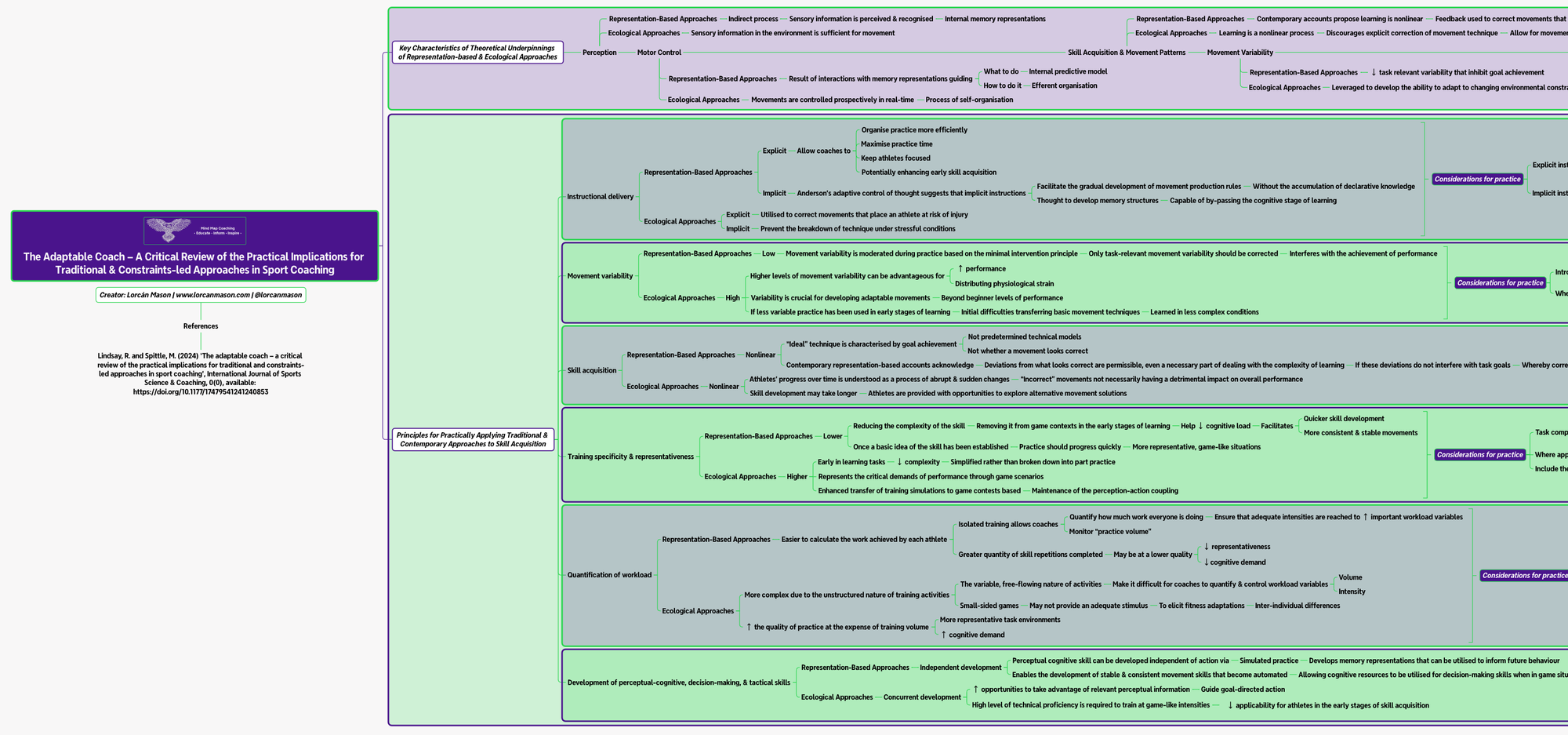The Adaptable Coach – A Critical Review of the Practical Implications for Traditional & Constraints-led Approaches in Sport Coaching
Coaching, often described as a field that lacks exact scientific principles but thrives on artistic expression, requires skilled coaches to possess a high level of openness, adaptability, and flexibility in their approach.

Coaching is not a precise science but rather an intricate art form that requires skilled coaches to possess qualities of openness, adaptability, and flexibility in their methods, while continuously taking into account the multifaceted nature of the broader coaching process. The dynamic and evolving landscape of performance contexts demands that adept coaches be not only adaptable and flexible, but also capable of swiftly and efficiently responding to the ever-changing needs of their athletes and the evolving contextual requirements. Coaches find themselves in the challenging position of navigating a multifaceted and constantly shifting environment that calls for a prudent and carefully measured approach in managing a multitude of competing factors.
The comparison between traditional and contemporary coaching approaches often highlights contrasting viewpoints, with traditional methods being lauded for their perceived benefits in areas such as the speed at which skills are acquired, yet critiqued for their overly rigid and prescriptive nature. On the other hand, contemporary approaches are commended for their ability to facilitate personalized learning experiences and the development of transferable skill sets. Both traditional coaching strategies and a Contemporary Learning Approach (CLA) possess unique strengths and weaknesses that coaches must carefully assess or reassess in order to determine the integration of these approaches within the framework of various influencing factors, which include the characteristics of the athlete and the educational objectives set for a given practice session or training regimen. The decision-making processes of a coach should be customized to suit the specific needs of individual athletes and the targeted learning outcomes they aim to achieve.
Both traditional coaching methods and a CLA can produce a wide array of learning and performance outcomes, and a thorough understanding of these outcomes can aid skilled coaches in identifying the most appropriate approach for a particular learning scenario. Hence, the challenge for coaches lies in deciphering which approach aligns best with the developmental stage of an athlete and their unique learning and performance prerequisites. The determination of which aspects of an approach to incorporate depends on a variety of intricate factors, inclusive of the athlete's characteristics and performance objectives. Elements from both traditional and contemporary (CLA) approaches have the potential to be effective in fulfilling learning and performance objectives, each carrying their own set of advantages and disadvantages that coaches may take into consideration when making decisions regarding coaching methodologies.

